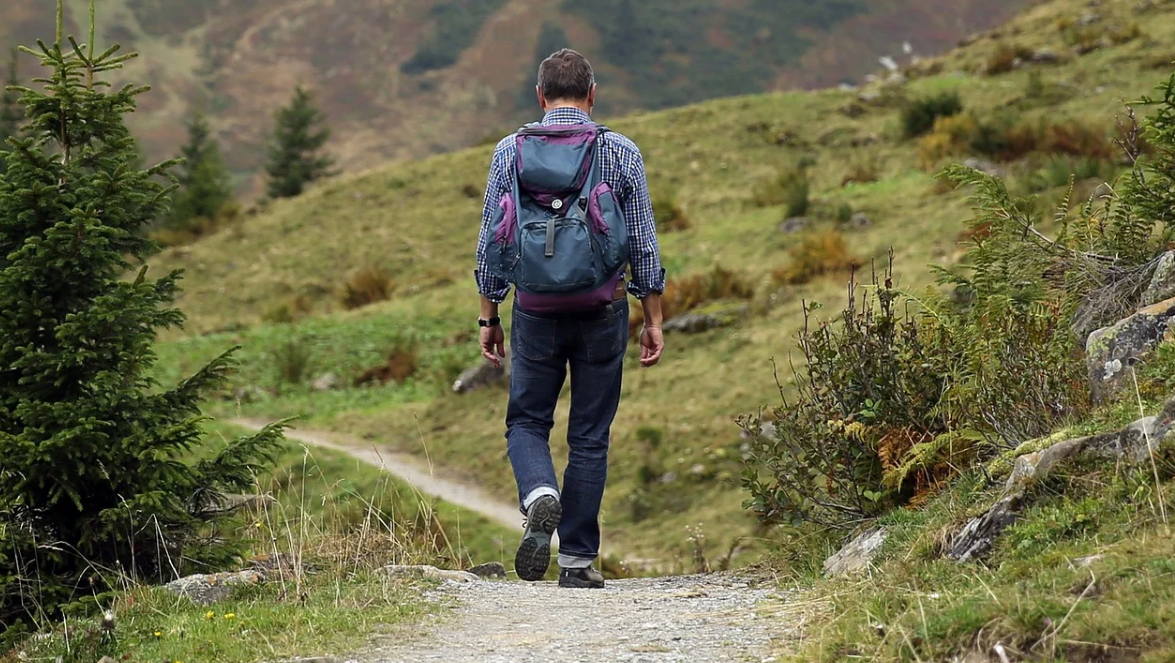Hiking is a great activity for friends and families to partake in. Hiking is a wonderful form of exercise as there are trails of varying intensity so that even novice athletes can get outside and start having fun immediately. As with any sport or outdoor activity there are basic safety guidelines for hiking that should be followed to help avoid accidents and injury. Please be sure to read these hiking safety tips before you venture out into the woods.
What To Pack For A Hiking Trip
Bring A Cell Phone – Cell phones work almost everywhere nowadays, even in the middle of the woods! A cell phone can be used to call for help in the event of an emergency and can be used to contact other members of your party should you become separated.
Bring Plenty Of Water – Each member of your hiking party should pack as much water as they can comfortably cary. You can even freeze your bottled water the night before so that it remains cold for the duration of your hike. A general rule of thumb is to drink 3 quarts of water per person per day/depending on length of your hiking trip.
Bring A First Aid Kit – The American Red Cross has provided guidelines as to what should be included in a first aid kit. It is easiest to purchase a first aid kit such as the one pictured below. If you take prescription medicine be sure to bring your medicine with you.
Pack Essential Outdoor Gear – Be sure to pack a flashlight, pocket knife, whistle, lighter or matches, compas and or GPS, and trail maps for the area in where you’ll be hiking. Also, be sure to check battery levels on your electronic devices before you venture into the woods.
Pack Nutritious Snacks – Carbohydrate rich snacks will provide your body with the energy that it needs to participate in high endurance activities such as hiking. Some examples of carbohydrate rich snacks are whole grain crackers, pretzels, bagels, trail bars such as Clif, Larabar
, or Odwalla
, turkey slices or turkey jerky, dried fruits, and granola or trail mix.
To make homemade granola; mix rolled oats, cashews, almonds, cinnamon, cashew butter, maple syrup, dried cranberries, dried cherries, apple juice and coconut milk and bake for 45 minutes to an hour.
Before You Go Hiking
Never Hike Alone – Plan to hike with others. Even the most experienced athletes and outdoors enthusiasts can have accidents. Hiking with a friend is more fun, and it could literally save your life!
Check In With A Friend – Be sure to leave your itinerary and basic coordinates with a friend before leaving on your hike. Check in with your friend before you begin your hike and be sure to call them after you have finished.
Learn About The Area – Learn about the area in which you plan to hike before you go. Often times designated hiking areas will list the difficulty of the available trails.
On The Hiking Trail
Know Your Limits – Some hiking trails can be physically challenging to successfully complete. In general, you should be able hike a given trail while carrying out a conversation. If you find yourself exhausted and out of breath you should stop and rest.
Stay Hydrated – You’ll want to drink about half a litre of water for every mile that you hike.
Stop And Rest – Be sure to stop and rest as needed. In general you’ll want to take a quick break for every 3 – 5 miles that you hike. Be sure to eat every 3 – 4 hours in order to maintain adequate blood sugar.
Dress Appropriately – Dress appropriately for the weather condition that you’ll be hiking in and turn back if the weather gets to be too extreme.
Wear Sunscreen – Be sure to wear sunscreen even on overcast days. A sunburn could really ruin your hiking trip.
A Special Thanks To Chrissy Wellington!
This article wouldn’t have been possible without the help of Chrissy Wellington. Chrissy is a nutritionist and fitness instructor at the world famous Canyon Ranch in Lenox, MA. Chrissy holds degrees and certifications including; B.A. in Psycology from St. John’s University, M.S. in Clinical Nutrition from the University of Bridgeport, is a C.N.S (certified nutrition specialist) and a L.D.N. (licensed Dietitian Nutritionist from the state of Massachusettts) and a C.P.T (certified personal trainer from National Academy of Sports Medicine)

